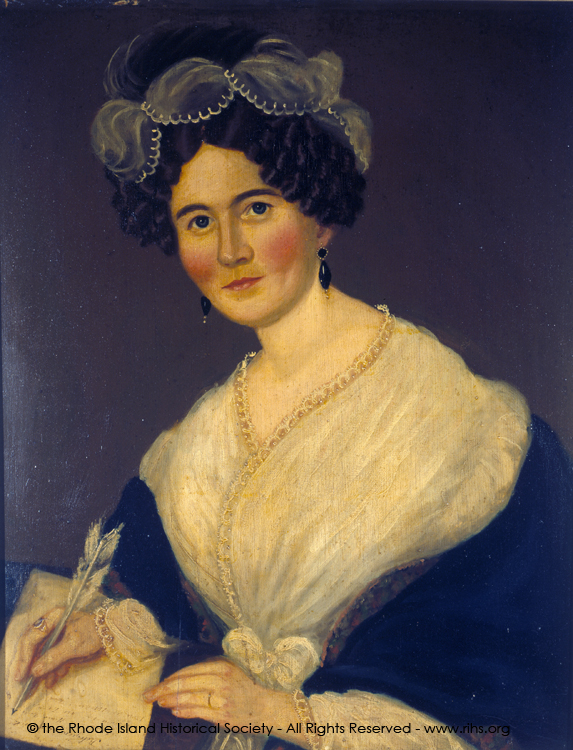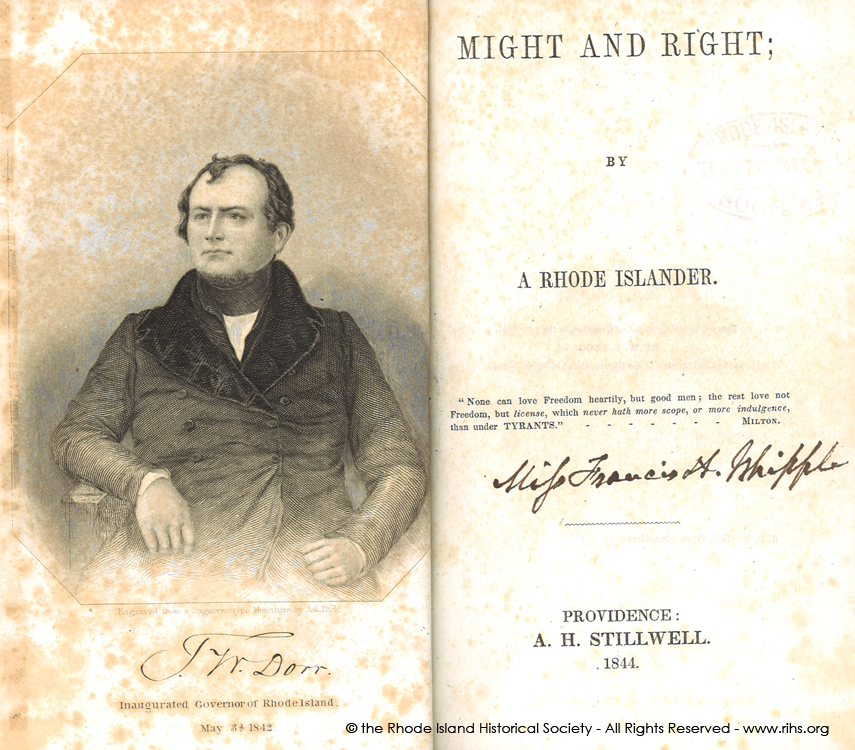
After the death of one aunt, and the marriage of the other, Miss Arnold met a Mr. Williams, a sixth-generation descendant of Roger Williams. They were married in New York, by Episcopal Bishop Benjamin Onderdonk. After living in western New York state for several years with Mr. Williams, Mrs. Williams fled for Providence with their infant daughter; Sidney Rider judged the marriage ‘a most unfortunate one.’ Mrs. Williams petitioned for divorce, with the support of her Providence friends, and though denied at first, persisted, until she won.
She supported herself by opening a school, and with her writing. In addition to a book of poems and a novel, she wrote histories, drawing on the Revolutionary past that was only fifty years past. She became part of Providence’s literary and intellectual circles, and developed an interest in in politics. Catherine Williams was not the only woman who supported the suffrage movement and Thomas Wilson Dorr: the women were described in the anti-Suffrage press in Providence as “Dorrites in petticoats,” but at least one- half of the attendance at public suffrage meetings were women.

The RIHS Library holds this intriguing volume, written by another Rhode Island woman author. Might and Right, by A Rhode Islander, published in 1844, was written by Miss Francis A. Whipple (1805-1878). She married Charles C. Green in 1842, but divorced him five years later.
These divorced, political women writers must have scandalized Providence society, even as they commanded its respect. They were on the leading edge of change, and thanks to them, we live in a very different world.
~Kirsten Hammerstrom, Director of Collections
